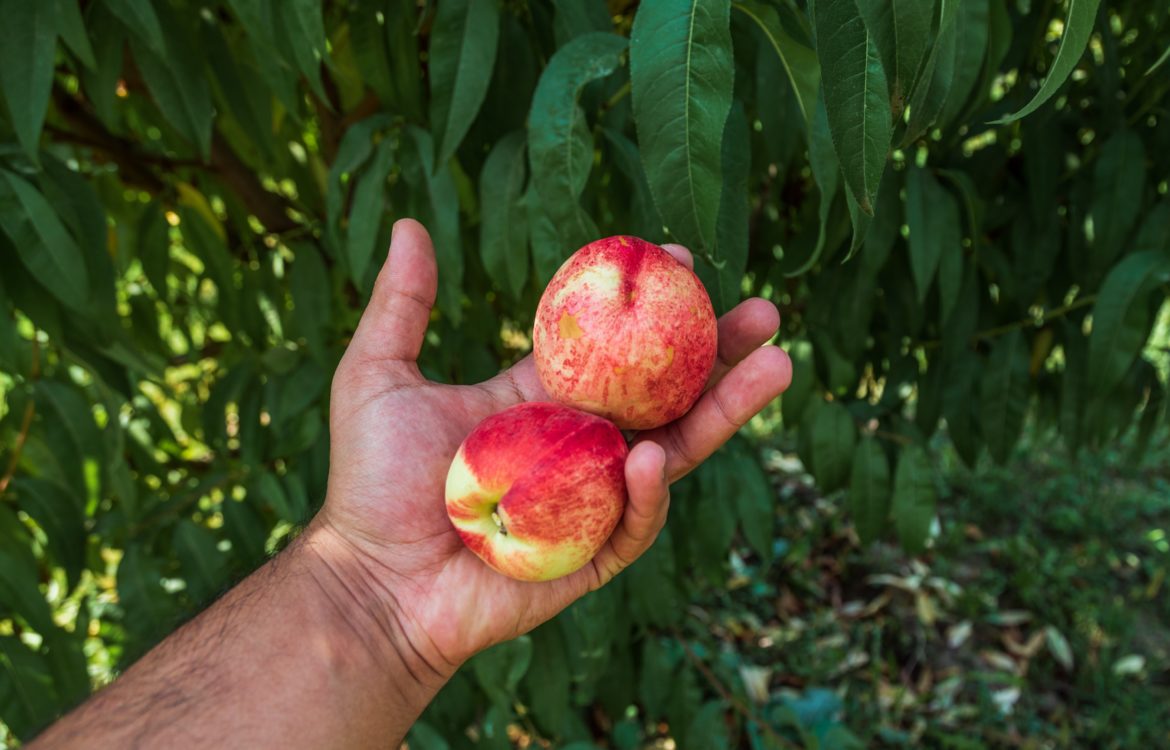
The organic fruit breeding sector at a glance
Written by Mariagiulia Mariani
The fruit breeding sector is responsible for the genetic improvement of fruit crops through various techniques, from ancient (starting from domestication) to very innovative ones (including genetic engineering), meant to develop fruit cultivars with the desired traits and unique characteristics. This brief will provide key information about the very specialised “organic fruit breeding sector”, its value chain and main actors, that are the object of the InnOBreed project1.
The constant growth of the organic fruit value chain in the last decade has combined to the increased need of using cultivars that are adapted to organic agronomic practices. First, the seed that is propagated under organic conditions is mandatory (Reg. CE 848/18). Then, the choice of the cultivar is crucial to ensure the reduction on the use of chemical non-authorised inputs. It is important to notice that 95% of the varieties used today, including those in organic agriculture, were initially bred for intensive farming. All stakeholders described here below, from local farmers to informed consumers, should be durably involved in breeding activities adapted to the organic farming system.
The main actors of the value chain

The Organic Fruit Breeding sector (source: our elaboration)
R&D: Basic research on breeding is generally conducted by public research institutes, mainly located Germany and France. Breeding and propagating SMEs are often in charge of seed multiplication, plant propagation, grafting and sales.
Breeders: New breeding approaches and programs are developing, carried out by private/public partnerships:
- Integrated Pest Management (IPM) Breeders: They work for the development of cultivars with tolerance or resistance to key pests in combination with agronomic practices (e.g., intercropping).
- Organic Breeders: They carry out every selection and multiplication step under organic conditions. The genetic material is not contaminated by OGMs and is produced and propagated in the soil.
Community Plant Variety Office (CPVO): It manages the EU’s intellectual property rights system for new plant varieties. A technical examination of a submitted variety aims to ensure that the criteria of “distinctness, uniformity, and stability” (DUS) are complied with. This examination is entrusted to Member States’ examination offices.
Cultivar testers: They test varieties and rootstocks in non-sprayed orchards to evaluate their agronomic characteristics and resilience in contrasting environments or cultivation practices.
Plant reproductive material (PRM) multipliers / Nurseries: Fruit PRM available in the EU is mainly produced in specialised rural areas concentrated in Spain, Italy, Netherlands, and France, mostly by SMEs.
Amateur fruit growers: Outside the certification schemes, amateur fruit growers (e.g., home gardeners) play a crucial role in maintaining existing agrobiodiversity and in experimenting with minor forgotten fruit varieties.
Organic certifiers: Seed certification is necessary for seed growers and processors and follows organic standards for planting, harvesting, handling, storage, and conditioning.
Organic farmers: Italy has by far the largest number of organic fruit farmers in EU, followed by France, Spain and Germany. They have different sources of PRM:
- buying certified plants from specialised suppliers,
- buying conventional plants and entering a mandatory 3-year period of “conversion”,
- buying conventional plants and asking for a derogation from the EU regulation.
- self-production (rare).
On the other side of the value chain, organic farmers cooperate and are integrated with processors and distributors to allow a more efficient collection and processing of organic produce.
Conditioning: The logistics of transportation, preservation, packaging, and storage are generally undertaken by a small number of wholesalers, with the exception of large farmers’ cooperatives, like in the case of apple production in South Tyrol. The need to keep organic and conventional products separated in storage is a bottleneck for the organic fruit value chain.
Processors: Processing companies commonly transform organic fresh fruit into fruit juices and pulps, and jams, separately from those of conventional products.
Market channels: In EU, the organic fruit value chain is generally integrated into the mainstream food chains. Supermarket chains have founded partnerships with organic associations and sell products with their brands, e.g., Bioland-Lidl in Germany. Italy, France, and Germany are the only countries where up to 50% of organic food is sold through specialised retailers and direct sales.

